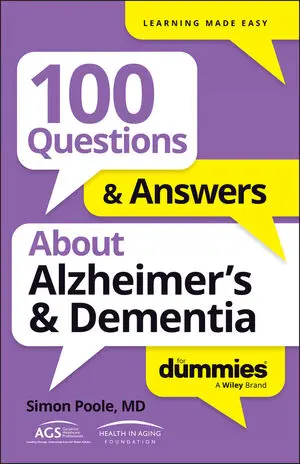The best Alzheimer's treatments in the world will have no effect in someone with vitamin B12 deficiency because this cause of cognitive impairment demands vitamin replacement. In addition, depression and delirium must be ruled out as the cause of your loved one's symptoms before diagnosing dementia, especially because these are usually treatable conditions as well.
You may be asking, "Well, heck, I'm not a doctor. How am I supposed to know if my mom or dad has Alzheimer's, another form of dementia, or something else entirely?"
Dementia is a clinical state characterized by loss of function in multiple areas. Its most common symptom is memory impairment, accompanied by problems in at least one other area — language, personality, the ability to perceive objects, and executive functioning (the ability to plan and carry out complex actions). Not only does a person with dementia need to exhibit these symptoms, but they must also be severe enough to interfere with that person's function in daily life.
There are approximately 50 different types of dementia. Depending on which study you believe, 3 to 15 percent of all dementias are potentially reversible. However, AD is an irreversible progressive type of dementia.No one expects you to know what is the specific root cause of your loved one's symptoms, but you do know your loved one. Therefore, you do have the best chance to observe him and keep a record of the symptoms and behavior you observe that caused you to take him to the doctor in the first place. If you keep a good record of your loved one's symptoms, you can play a huge role in helping the doctor find the correct diagnosis.
For instance, symptoms of memory loss alone may tell your doctor one thing, but memory loss accompanied by lethargy may lead her to check for substance abuse, medication side effects, or urinary infection. The clues you provide in the initial interview with the doctor are incredibly valuable in helping to determine which tests should be ordered and which aren't needed.
According to the Alzheimer's Association, AD is the most common type of dementia, accounting for about 60 percent of all dementias, with vascular dementia (caused by problems with the brain's blood supply) responsible for another 10 percent. The remaining 30 percent of cases consist of both the less common dementias and mixed dementia or combined causes. So even if your loved one acts like he has AD, don't go jumping to conclusions until you get the test results and a good diagnosis.






